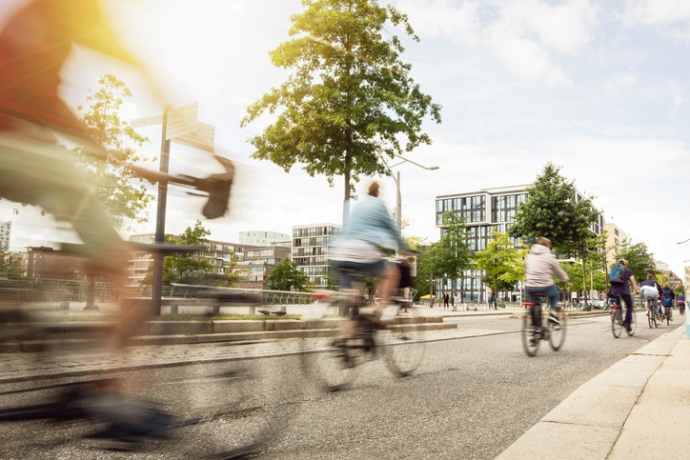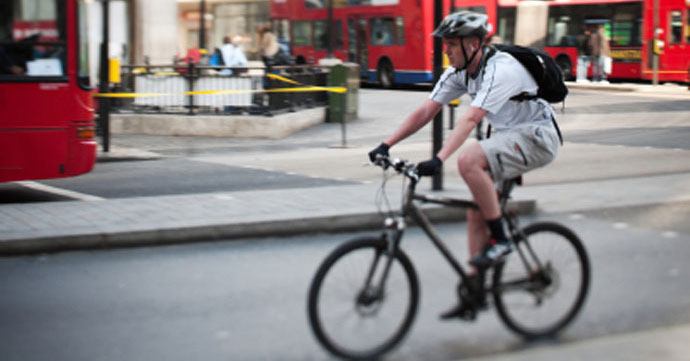
The government’s chief medical officer for England, Sir Chris Whitty, has urged people to get cycling.
Speaking at the annual conference of the Local Government Association and the Association of Directors of Public Health, Whitty said people should be encouraged to incorporate walking or cycling to work into their daily lives to help combat obesity and that exercise is among the “most effective ways of improving health.”
“I think there’s often a feeling that it’s going to be very hard work to get people to, for example, take up cycling,” he said. “But if you went back to the ’50s and ’60s there were extremely high rates of people cycling for work as well as recreationally across the country.”
People in England cycled a combined total of 5 billion kilometres in 2019 – less than a quarter of the 24 billion kilometres ridden in 1949.
Whitty said: “One of the things that is the most effective ways of improving health – whether it’s cardiovascular, cancer or mental health – is physical exercise. And active transport is a particularly important way to do this because it builds it into people’s normal routines of daily life, rather than being seen as something that is separate.”
Cycling to work is a tonic
Commuting by car has a damaging effect on a driver’s mental health. Cycling, walking, and even travelling by public transport, by contrast, have a positive effect on wellbeing.

A study by Norwich medical school of over 17,000 commuters and 18 years of data found that car commuters were at least 13 per cent more likely to feel constantly under strain or unable to concentrate” than those who cycled or walked to work. The longer drivers spent on their daily commute, the worse their psychological wellbeing.
The findings appear to reinforce previous research suggesting that workers who cycle to work have fewer sick days.
When commuting by car was compared to public transport, a way of travelling to work that is often described as beset by overcrowding and delays, the researchers found that those using buses and trains benefited from better levels of wellbeing.
Lead researcher Adam Martin, from University of East Anglia’s Norwich Medical School, said: “One surprising finding was that commuters reported feeling better when travelling by public transport, compared to driving. You might think that things like disruption to services or crowds of commuters might have been a cause of considerable stress. But as buses or trains also give people time to relax, read, socialise, and there is usually an associated walk to the bus stop or railway station, it appears to cheer people up.”
The researchers believe that stress caused by delays and cancellations are offset by the fact that bus and rail commuters also get time to relax, read or socialise, and even the walk to the station is beneficial.
The ethical choice
The ETA was established in 1990 as an ethical provider of green, reliable travel services. Over 30 years on, we continue to offer cycle insurance , breakdown cover and mobility scooter insurance while putting concern for the environment at the heart of all we do.
The Good Shopping Guide judges us to be the UK’s most ethical provider.
0 Comments View now